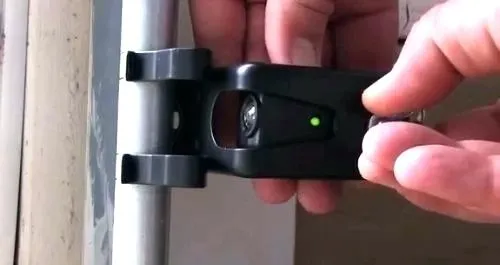Dealing with unexpected issues like a Liftmaster garage door opener reverses when closing can be perplexing. In this comprehensive guide, we’ll unravel the mysteries behind this problem, explore potential causes, and provide actionable solutions to get your Liftmaster garage door functioning smoothly.

Introduction
A Liftmaster garage door opener is renowned for its reliability, but encountering the issue of the door reversing when closing can be frustrating. Understanding the reasons behind this unexpected behavior is crucial for troubleshooting and ensuring the safety and security of your home. Let’s dive into the details of why a Liftmaster garage door opener may reverse when closing and how you can address the issue.
Investigating the Quirk: Liftmaster Garage Door Opener Reverses When Closing
When your Liftmaster garage door exhibits the peculiar behavior of reversing when it should be closing, various factors may be at play. Let’s explore common causes and effective solutions to rectify this issue.
1. Misaligned Safety Sensors
One of the primary reasons for a Liftmaster garage door opener to reverse when closing is misaligned safety sensors. These sensors, located on either side of the garage door near the floor, transmit an invisible beam. If this beam is interrupted, the opener assumes there is an obstruction, prompting the reversal.
Solution:
- Check for any obstacles or debris blocking the sensor’s path.
- Ensure that the sensors are properly aligned and facing each other without deviations.
2. Faulty Safety Sensor Wiring
Wiring issues can also lead to the reversal problem. Damaged or disconnected wires can disrupt the communication between the safety sensors, triggering the garage door opener to reverse.
Solution:
- Inspect the wiring for any visible damage.
- Reconnect or replace damaged wires as needed.
3. Limit Switch Adjustment Issues
The limit switch on a Liftmaster garage door opener determines how far the door should move during its operation. If the down limit switch is set too high, the door may reverse prematurely.
Solution:
- Locate the limit switch adjustment screws on the opener unit.
- Gradually adjust the down limit switch to ensure the door closes completely before reversing.
4. Obstruction in the Door’s Path
Physical obstructions, such as debris or objects in the garage door’s path, can trigger the safety mechanisms, causing the door to reverse.
Solution:
- Clear the area around the door, removing any obstacles that may be triggering the reversal.
Steps to Resolve the Problem
- Clear the Sensor Path: Ensure that the area around the safety sensors is free from obstructions. Remove any objects or debris that might be blocking the infrared beam.
- Check Sensor Alignment: Verify that the safety sensors are properly aligned. Adjust their positions if necessary to ensure a clear line of sight between them.
- Inspect Wiring Connections: Examine the wiring connected to the safety sensors for any damage or disconnections. Repair or replace damaged wires, and securely reconnect any loose connections.
- Adjust Down Limit Switch: Locate the limit switch adjustment screws on the garage door opener unit. Gradually adjust the down limit switch until the door closes completely before reversing.
- Remove Obstructions: Ensure that there are no physical obstructions in the door’s path. Clear the area to prevent triggers for the safety mechanisms.
Preventive Measures for Liftmaster Garage Door Opener Maintenance
To avoid encountering the issue of a Liftmaster garage door opener reversing when closing, consider implementing these preventive measures:
- Regular Sensor Maintenance: Periodically clean and inspect the safety sensors to ensure proper functioning.
- Scheduled Lubrication: Lubricate the moving parts of the garage door, including tracks, rollers, and hinges, to reduce friction and promote smooth operation.
- Professional Inspection: Schedule regular inspections by a professional garage door technician to identify and address potential issues before they escalate.
Conclusion: Ensuring Smooth Operation of Your Liftmaster Garage Door Opener
In conclusion, the reversal of a Liftmaster garage door when closing is a common issue with identifiable causes and solutions. By understanding the role of safety sensors, checking wiring connections, adjusting limit switches, and maintaining a clear path, you can troubleshoot and resolve the problem.
Remember, preventive measures and regular maintenance play a crucial role in ensuring the longevity and trouble-free operation of your Liftmaster garage door opener. With these insights and practical solutions, you can bid farewell to the quirk of your Liftmaster garage door opener reverses when it should be closing and enjoy the convenience and security it was designed to provide.



Leave a Reply